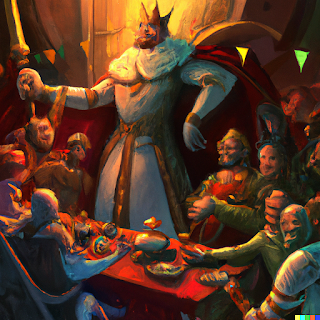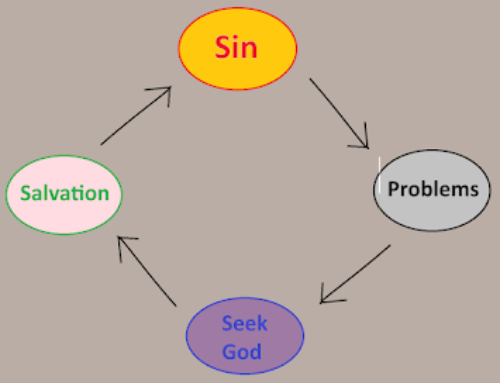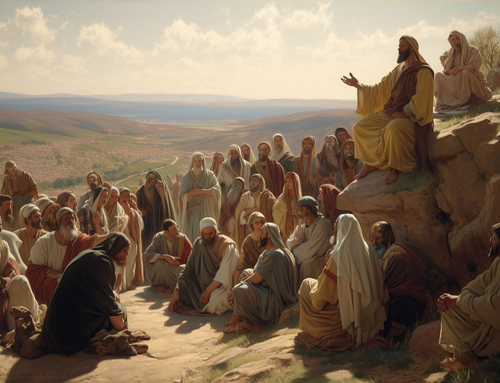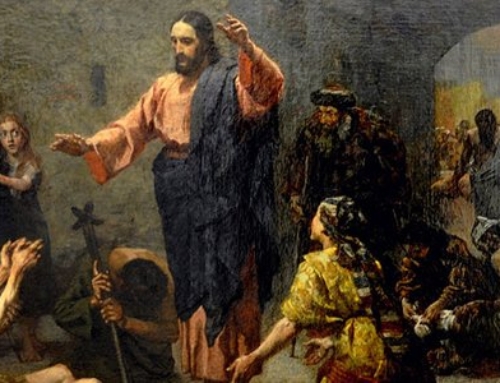Jesus had an interesting way of teaching his followers. Many of his lessons came in the form of parables that explained godly concepts in terms of things his followers should have been able to understand. The use of stories to teach lessons isn’t in itself unusual. The Tortoise and the Hare is one such story. It was one of Aesop’s fables. Like Jesus’ parables, Aesop’s fables consisted of simple narratives that were used to deliver a lesson about what is right or prudent i.e., the moral of the story.
What made Jesus’ approach unique is his reasoning for why he used parables.
The disciples came to him and asked, “Why do you speak to the people in parables?”
He replied, “Because the knowledge of the secrets of the kingdom of heaven has been given to you, but not to them. Whoever has will be given more, and they will have an abundance. Whoever does not have, even what they have will be taken from them. This is why I speak to them in parables:
“Though seeing, they do not see; though hearing, they do not hear or understand.” – Matthew 13:10-13
Jesus taught using parables because he didn’t want to be understood. He was fulfilling a prophecy from Isaiah. It seems strange that Jesus, the great teacher, would purposely give lessons that he knew wouldn’t be understood, but that’s exactly what he did. Consider the parable of the wedding banquet.
Jesus spoke to them again in parables, saying: “The kingdom of heaven is like a king who prepared a wedding banquet for his son. He sent his servants to those who had been invited to the banquet to tell them to come, but they refused to come.
“Then he sent some more servants and said, ‘Tell those who have been invited that I have prepared my dinner: My oxen and fattened cattle have been butchered, and everything is ready. Come to the wedding banquet.’
“But they paid no attention and went off—one to his field, another to his business. The rest seized his servants, mistreated them and killed them. The king was enraged. He sent his army and destroyed those murderers and burned their city.
“Then he said to his servants, ‘The wedding banquet is ready, but those I invited did not deserve to come. So go to the street corners and invite to the banquet anyone you find.’ So the servants went out into the streets and gathered all the people they could find, the bad as well as the good, and the wedding hall was filled with guests.
“But when the king came in to see the guests, he noticed a man there who was not wearing wedding clothes. He asked, ‘How did you get in here without wedding clothes, friend?’ The man was speechless..
“Then the king told the attendants, ‘Tie him hand and foot, and throw him outside, into the darkness, where there will be weeping and gnashing of teeth.’
“For many are invited, but few are chosen.” – Matthew 22:2-14
Jesus said a lot with this parable. First, in the parable, the king called in people that were set apart with the expectation that they would surely come, but they didn’t come. Not only did they not come, they killed the servants sent to deliver the invitations. The people did not understand, but this part of the story was referencing their past. Jesus was alluding to how the Hebrews, God’s chosen people, rejected him on several occasions and even went so far as to kill some of his messengers, the prophets. Jesus made reference to that in other parts of the Gospels too (e.g., Luke 13:34). Jesus spoke of their past, but the people didn’t really understand.
Even more interesting was that Jesus also used the parable to speak about the present and future. The king ordered his servant to open up the party invitation to people outside of those he set aside. That part of the story was in reference to Jesus reaching out to the Gentiles.
The last part of the story involves someone being invited but then being kicked out of the party because they weren’t properly dressed. The people at the time certainly did not understand Jesus’ meaning, but we should because Jesus spoke on it in another place in the Bible.
Not everyone who says to me, ‘Lord, Lord,’ will enter the kingdom of heaven, but only the one who does the will of my Father who is in heaven. 22 Many will say to me on that day, ‘Lord, Lord, did we not prophesy in your name and in your name drive out demons and in your name perform many miracles?’ 23 Then I will tell them plainly, ‘I never knew you. Away from me, you evildoers!’ – Matthew 7:21-23
We are in a unique position. We have access to all of God’s Word and don’t have to rely on others to learn. We can read the Bible and receive God’s word in a way that wasn’t possible for most people in the past. We who believe have access to the Holy Spirit and gain insight in a way that most people in the past could not. The people of Jesus’ day did not fully understand Jesus’ parables, but thanks to all of God’s gifts, we can.
Jesus delivered his parables to his contemporaries, but all the meanings of those stories weren’t meant for the people he was teaching at the time. They were meant for us. God’s planning is amazing. Sometimes it might feel like we received the short end of the stick because we can’t physically interact with Jesus like the people in his day did. The truth is that we are blessed because we are able to gain insight from Jesus’ words that people back then could have never hoped for, and that’s just how God wanted it.







